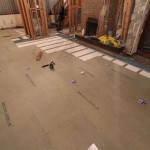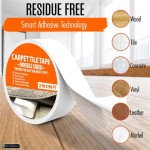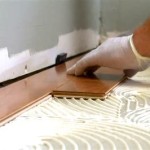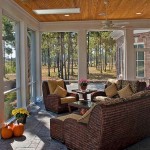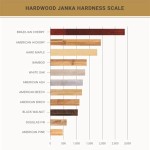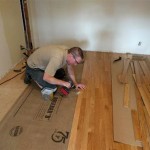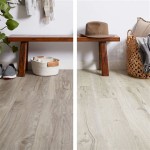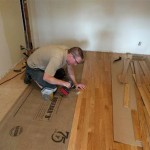Advantages of Somerset Engineered Flooring: A Detailed Review
Somerset engineered flooring represents a significant advancement in flooring technology, offering a compelling alternative to solid hardwood. This flooring type combines the aesthetic appeal of natural wood with enhanced durability, stability, and ease of installation, making it a popular choice for homeowners and commercial property owners alike. This article will delve into the key advantages of Somerset engineered flooring, providing a thorough understanding of its benefits.
Enhanced Stability and Durability
One of the primary advantages of Somerset engineered flooring lies in its exceptional stability. Unlike solid hardwood, which is susceptible to expansion and contraction due to changes in humidity and temperature, engineered flooring is specifically designed to resist these effects. This stability is achieved through its multi-layered construction. The core of engineered flooring typically consists of multiple layers of plywood or high-density fiberboard (HDF), which are glued together with the grain running in different directions. This cross-layered construction provides superior dimensional stability, minimizing the risk of warping, cupping, or gapping.
This inherent stability makes Somerset engineered flooring particularly well-suited for installation in areas with fluctuating humidity levels, such as basements, kitchens, and bathrooms. The ability to withstand moisture also translates to a longer lifespan compared to solid wood flooring in such environments. Furthermore, the top layer, or veneer, of Somerset engineered flooring is typically made of real hardwood, providing the same natural beauty and feel as solid hardwood. This veneer is often available in a variety of wood species, grades, and finishes, allowing homeowners to choose the aesthetic that best complements their interior design.
The durability of Somerset engineered flooring is also a significant factor contributing to its appeal. The multi-layered construction provides a robust foundation that can withstand everyday wear and tear. The top veneer is typically finished with several coats of a durable protective coating, such as polyurethane or aluminum oxide. These coatings protect the wood from scratches, stains, and fading, ensuring that the flooring maintains its beauty for years to come. The specific durability of the flooring will depend on the thickness of the veneer and the type of finish applied.
Moreover, the manufacturing process of Somerset engineered flooring often includes rigorous quality control measures to ensure that the product meets strict standards for durability and performance. This commitment to quality translates to a flooring solution that is built to last, providing homeowners with peace of mind and long-term value. The impact resistance of the engineered construction often surpasses that of solid hardwood, making it a practical choice for households with children or pets.
Versatile Installation Options and Ease of Maintenance
Somerset engineered flooring offers a range of installation options that cater to various subfloor types and project requirements. Unlike solid hardwood, which typically requires nailing or gluing to a wooden subfloor, engineered flooring can be installed using a variety of methods, including glue-down, nail-down, staple-down, and floating installation. The floating installation method, in particular, is a popular choice for DIY enthusiasts as it is relatively simple and requires minimal specialized tools.
The versatility of installation methods allows homeowners to choose the option that best suits their skills and the specific characteristics of their subfloor. For example, a glue-down installation provides a more secure and stable bond between the flooring and the subfloor, while a floating installation is often preferred for its ease and speed. The choice of installation method can also impact the sound insulation properties of the floor, with glue-down and nail-down installations generally providing better sound dampening than floating installations.
In addition to its ease of installation, Somerset engineered flooring is also relatively easy to maintain. Regular sweeping or vacuuming is typically sufficient to remove dust and debris. For deeper cleaning, a damp mop with a mild wood floor cleaner can be used. However, it is important to avoid using excessive water, as this can damage the wood veneer. The protective finish on Somerset engineered flooring helps to resist stains and spills, making it easier to clean up messes quickly.
Furthermore, the durability of the finish means that the flooring is less likely to require refinishing than solid hardwood. While solid hardwood typically needs to be sanded and refinished every 10-15 years, engineered flooring can often last much longer without requiring this type of maintenance. This reduces the long-term cost of ownership and minimizes disruption to the home. Specific maintenance recommendations can be found from the manufacturer and should be followed to maximize the lifespan of the floor.
Cost-Effectiveness and Environmental Considerations
Somerset engineered flooring often presents a more cost-effective alternative to solid hardwood, especially when considering the total cost of ownership. While the initial purchase price of engineered flooring may be comparable to or slightly lower than that of solid hardwood, the reduced installation costs and lower maintenance requirements can result in significant long-term savings. The ease of installation, particularly with floating methods, can reduce or eliminate the need for professional installation services, further lowering the overall project cost.
The reduced maintenance requirements of Somerset engineered flooring also contribute to its cost-effectiveness. The durable finish and resistance to scratches and stains mean that the flooring is less likely to require costly repairs or refinishing. This can save homeowners a significant amount of money over the lifespan of the floor. Furthermore, the longer lifespan of engineered flooring compared to solid hardwood in certain environments, such as basements, can also result in long-term cost savings.
From an environmental perspective, Somerset engineered flooring often represents a more sustainable choice than solid hardwood. The multi-layered construction of engineered flooring allows manufacturers to utilize a smaller amount of hardwood in each plank. This reduces the demand for virgin hardwood resources and helps to conserve forests. The core of engineered flooring is often made from readily available and sustainable materials, such as plywood or HDF, further reducing the environmental impact.
Additionally, Somerset is committed to responsible forestry practices and sustainable manufacturing processes. They often source their hardwood from responsibly managed forests and utilize eco-friendly adhesives and finishes in their manufacturing process. This commitment to sustainability ensures that their engineered flooring products are environmentally responsible and contribute to a healthier planet. Consumers can often find certifications indicating the sustainable sourcing and production of Somerset’s engineered flooring, providing further reassurance about their environmental impact.
The combination of cost-effectiveness, sustainability, and long-term durability makes Somerset engineered flooring a compelling choice for homeowners and builders looking for a flooring solution that is both aesthetically pleasing and environmentally responsible. By carefully considering the specific needs and preferences of the project, it is possible to select a Somerset engineered flooring product that offers the perfect balance of beauty, performance, and value.
Ultimately, the decision to choose Somerset engineered flooring involves weighing the various advantages and comparing them to other flooring options. However, the enhanced stability, versatile installation options, ease of maintenance, cost-effectiveness, and environmental considerations make it a strong contender for any flooring project.

3 4 Inch Engineered 2024

Somerset Hardwood Flooring Review

Does Somerset Flooring Have Any Disadvantages

Engineered Flooring Solidplus Construction Wear Layer

Engineered Wood Flooring Reviews Pros And Cons S Best Brands 2024 Golink

Somerset Hardwood Flooring

Engineered Wood Flooring Reviews Pros And Cons S Best Brands 2024 Golink

Somerset Engineered Wood Flooring Tfs

Engineered Hardwood Flooring Why It S Still My Favorite Wood Reviews Floor Ers

Somerset Hardwood Flooring
See Also
